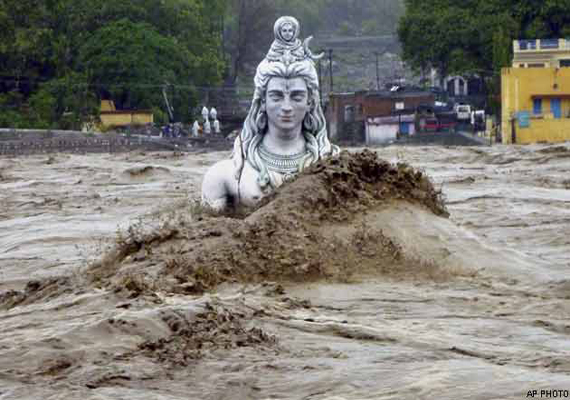New Delhi, June 26: Places that are prone to natural disasters must have a proper warning system in place and their residents should be educated on how to deal with crisis situations, experts said here Wednesday.
Experts, representatives of governments and the civil society from eight South Asian countries, including India, Pakistan and Bhutan, participated in a three-day workshop on 'Regional Priorities for Knowledge Management and Strategy for Action: South Asia on Climate Change and Disaster Risk Reduction' organised by Unesco.
Speaking to IANS on the sidelines of the event which ended Wednesday, SAARC Disaster Management Centre director Santosh Kumar said it was of utmost importance that a proper early warning system was in place for areas that were prone to natural calamities and residents were educated and informed about tackling a crisis.
"Early warnings need to be more quantified and people should be educated about the impact of such a damage...local level communities have to be educated and informed," he said.
Agreed Lam Dorji, executive director of Royal Society for Protection of Nature (RSPN), Bhutan, who said that when it comes to natural disasters, people at the village level have no education on how to tackle the situation.
"Changes have to be made at the ground level," he said.
Kumar said it was difficult to say whether climate change was behind the cloudburst and incessant rains which subsequently led to flash floods and landslides, killing hundreds in the hill state of Uttarakhand.
"Scientifically, it is difficult to establish the relation between the heavy rains and climate change as more study is required on this subject though according to reports, global warming is threatening to affect the rain patterns in India," Kumar said.

